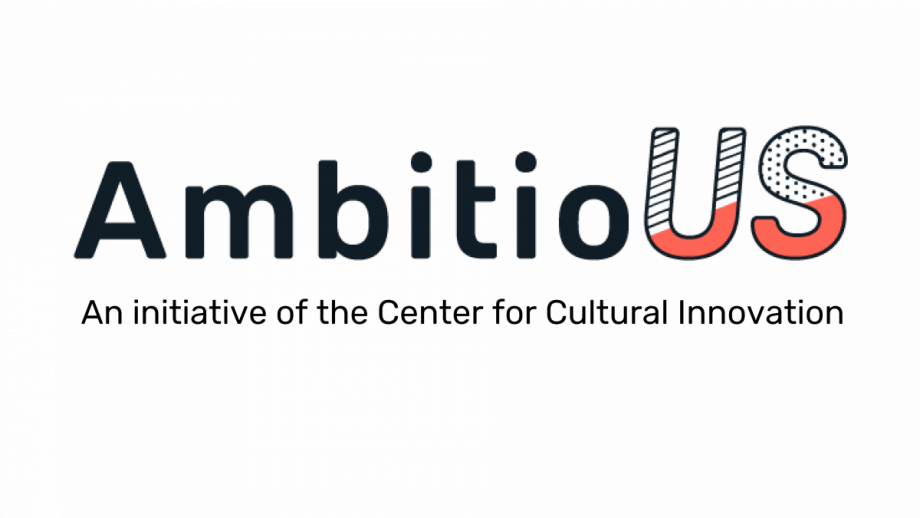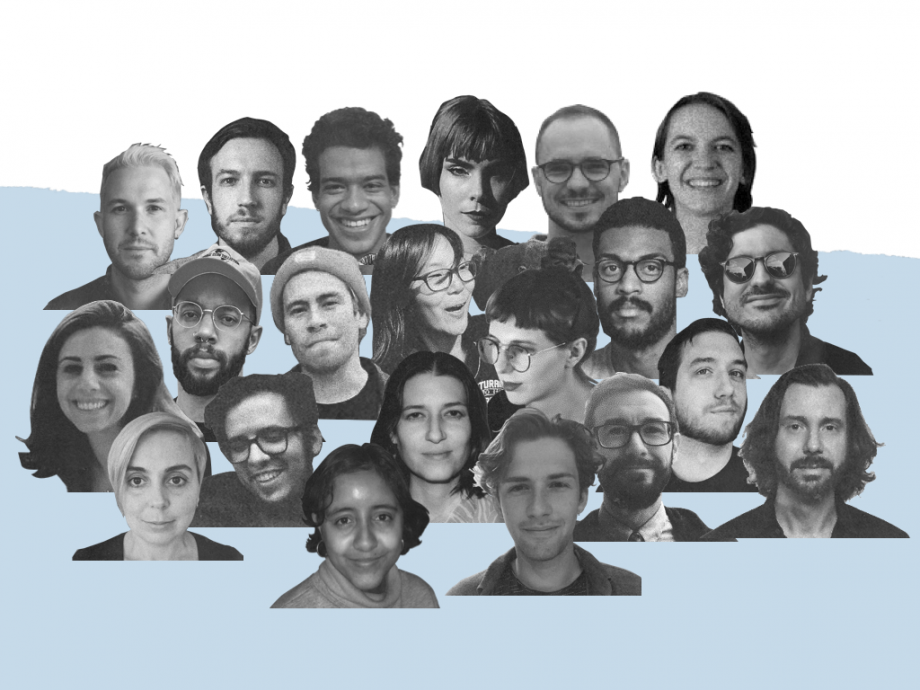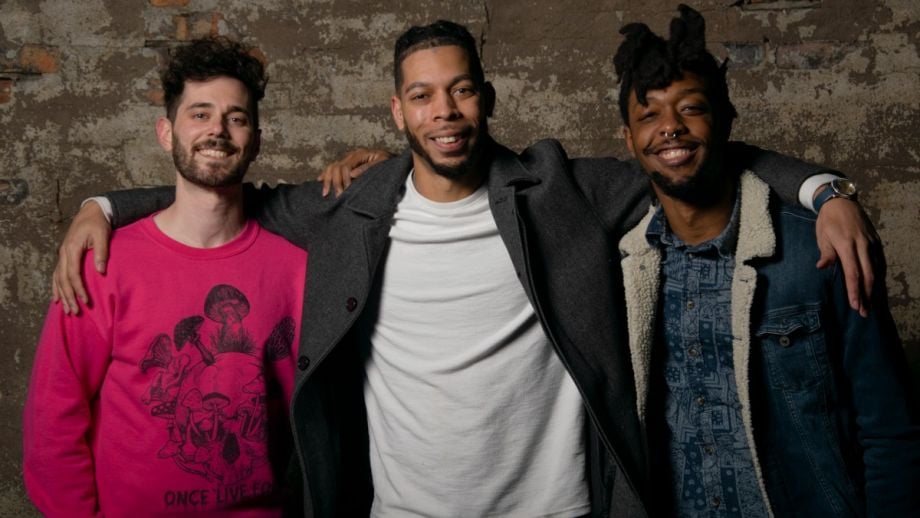EDITOR’S NOTE: This sponsored content is paid for by the Center for Cultural Innovation (CCI), as part of its AmbitioUS initiative. This series explores how alternative economic models can empower artists and culture bearers, with an eye toward financial freedom and long-term sustainability.

Queens folk-pop musician Lizzie No was gearing up for a tour of the U.S. and Europe in early 2020 after releasing a new album the year before. She was a couple years into focusing on music full-time, and excited to promote the album, connect with her fans, reach new audiences, and make enough money to recoup recording costs and pay back her band. In March, however, COVID brought live music to a standstill — where it remains nine months later.
“It felt like I would have to quit music,” No says. “No one can tell you you’re not a musician in your heart, but as far as being able to make it your job, if you can’t tour, you just have to sit at home with no income.”
That’s when No’s manager introduced her to Ampled, a musician co-operative platform that allows supporters to give monthly contributions to support their favorite artists as sort of a Patreon curated for musicians. She launched her page over the summer and is up to more than 130 supporters who are allowing her to continue making a full-time living from music, even from home.
“It’s also kept me sharp,” No says. “About once a week I post either an at-home video or demo or something like that for my supporters. If I didn’t have Ampled, I don’t know if I could be forced to release something music every week. It’s kept me on my game even though I’m sitting in my house.”
No is one of a number of musicians who have found cooperative funding integral to sustaining a career in the arts. The platform she used, Ampled, is one of six artist cooperative organizations to receive a $25,000 grant from AmbitioUS to sustain their work. Five of the six groups will also receive technical assistance from Uptima Entrepreneur Cooperative throughout the grant period.
The coronavirus pandemic has shined an even brighter spotlight on the need for shared community wealth. In cities across the country, people are turning to worker cooperatives and community wealth building to solve housing instability, local job loss, even to fund local news organizations. For artists, who can be particularly vulnerable to recessions and economic instability, this model could be key to helping them make a living through their work.
Ampled co-founder Austin Robey benefited from direct community support in the form of housing and food while on tour with his pop-punk band in the early 2010s. That experience made him want to replicate that structure online. He partnered with design wiz Collin Lewis to launch Ampled in 2018. Ampled is a platform that allows people to “subscribe” to a monthly donation of $3 (or more) to an artist; this gives the artist a platform on the site where they can release demos, exclusive merch, announcements or more. However, unlike Kickstarter, there are no tiers or rewards. Someone giving $40 to an artist won’t have any more access or content than someone giving the base $3.
“It’s meant to be non-transactional,” Robey says. “People are supporting artists not because they’re getting anything in return, but because they want to … we were inspired by Fugazi shows in the 80s or 90s that had $5, all-ages shows for every single show.”
For No, that equity of access was a big draw over other subscription platforms she considered — along with joining a platform that put musicians first.
“I assumed that if you did a subscription model you had to have rewards and tiers and all that stuff, and I was dreading it,” she says. “I’ve heard from fans over the years that they’re not actually in it for a key chain. They’re in it so that you can keep making albums.”
The platform entails two types of owners: artist-owners, such as Lizzie No, who have a page with at least 10 supporters, and worker-owners, who perform services such as writing code or community outreach for 80 hours or six months (whichever comes first) to become lifelong members. There is also a group of non-owners who support Ampled itself financially for $3 a month or more. These community members have already grown to the point where they’re covering all hosting and services costs needed to run the site; they range from people passionate about supporting musicians to others who see the cooperative model as a potential solution that could be replicated for other communities to build an online economy that works for more people — particularly artists. Each of these three stakeholder groups has three seats on an elected nine-seat board of directors.
Startup funding from organizations such as AmbitioUS is key for enterprises like Ampled, who aren’t typically candidates for venture capital funding.
“The VC model necessitates at least the possibility of a lottery return, which is typically done through an acquisition,” Robey says. “Although VCs would find us really interesting and compelling, if we didn’t provide them with a path to show a 10X return, they weren’t going to back us.”
As a worker-owned platform, Robey says, Ampled not only won’t be for sale, it won’t make any one person rich. The goal is to sustain funding for artists, not create wealth at the top. Some musicians were hesitant to join at first, having watched many other platforms shut down or change drastically on them. But with radical transparency around finances, organizational structure and governance, Ampled has encouraged artist buy-in and helped to overcome a very rational skepticism of the platform economy.
“There’s also a level of excitement among artists who are excited about ownership,” Robey adds. “If you’ve been a musician long enough, you’ve been on several different platforms and the idea of being able to own and have a voice over the platform is a very refreshing idea.”

The team at Ampled (Image courtesy of Ampled)
In Chicago, another AmbitioUS-funded organization is taking this same idea of shared artist ownership to the offline realm. Artist Resource Community Chicago, or ARC, sprung out of the Chicago DIY music scene. Nathaniel Green, one of the three co-founders of ARC, along with Kwirabura Intwari and Andrew Tschiltsch, said he was starting to see some social change in the last few years and black and brown musicians getting more recognition and jobs. When COVID hit, however, those opportunities quickly dried up. Many artists without back-up employment (Green is fortunate to be a trained electrician) struggled to support themselves.
“With the COVID situation, I did see a lot of my friends suffering, but I also saw how motivated people in progressive parts of cities were being with grocery deliveries and other forms of mutual aid,” Intwari says. “ARC Chicago is solidifying some of that and making sure for musicians it’s something that will last possibly forever.”
While still in the early stages, the vision is for an artist-owned community space where artist-owners can pay an affordable monthly membership to rent rooms to use as an art studio, rehearsal space or another creative enterprise. Worker-owners will be able to use the space for free. In-house staff, ranging from photographers to sound engineers, will support artists on their projects, and the space will provide endless potential for collaboration.
The space is for all artists, but ARC prioritizes the underserved community. Vetting worker-owners helps ensure that the space won’t become populated with already well-resourced artists trying to take advantage of the space and its many resources at a discounted rate. (They’re also running a community gear drive in early January to help cut down on start-up costs).
“The talent is already there,” Green says. “We’re not going in to black and brown communities and giving people the talent; it’s there. We’re just giving artists access to resources and showing them that with that access to resources and networks, you can produce quality just as good as anyone else’s.”
The cooperative structure ensures their business will give back to their artist community in Chicago for a long time — even after they’re around to run it. “I don’t want anyone to be able to come in and say here, we give you half a million dollars, and now we own your business,” Green says.
At a recent Chicago meetup of cooperatives, they were inspired to see how many different cooperatives there are in their city alone — from community gardens to housing-focused organizations to a bookkeeping collective. They hope ARC will eventually fit into a network of cooperatives across the city and the country, all working to reimagine how our economies function.
“People always think the opposite of capitalism is socialism and that there are no businesses, but that’s not true,” Tschiltsch says. “We can have businesses, they’re just not capital-focused. Co-ops aren’t always a big leap in how businesses function; sometimes they’re just a shift in who makes money.”
For the full list of grant winners, see the AmbitioUS press release here.
Kelsey E. Thomas is a writer and editor based in the most upper-left corner of the country. She writes about urban policy, equitable development and the outdoors (but also about nearly everything else) with a focus on solutions-oriented journalism. She is a former associate editor and current contributing editor at Next City.















